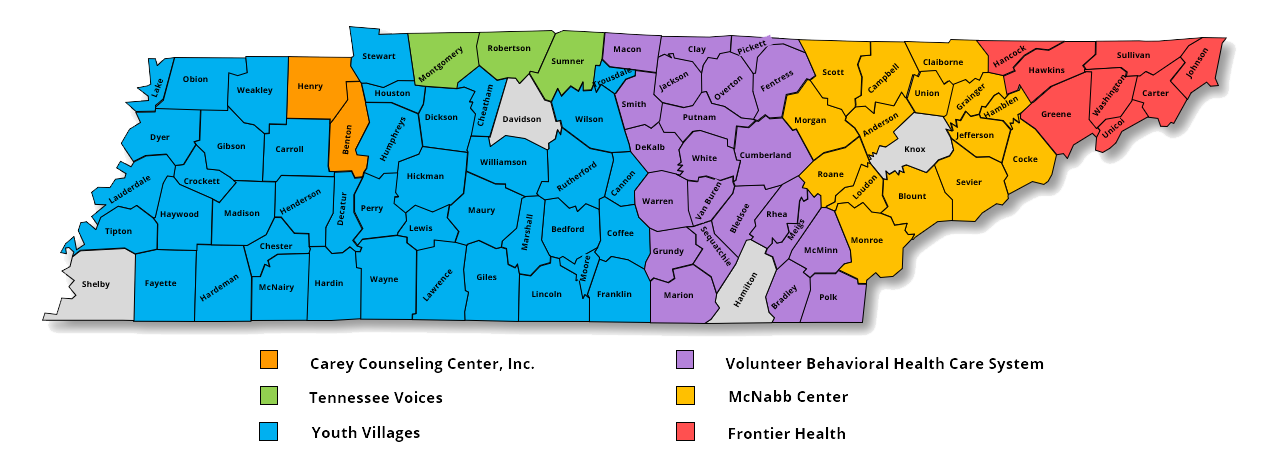Juvenile Justice Diversion Programs
The TDMHSAS Juvenile Justice Diversion Program serves to create treatment options for juvenile courts to utilize across the state, specifically services and training that are evidence-based and outcomes oriented. The targeted population is youth who have been referred to juvenile court for a delinquent/unruly charge, or who have already been adjudicated delinquent/unruly, and are at risk of being placed in DCS custody. Partners in this effort include the Tennessee Department of Children’s Services, Tennessee Commission on Children and Youth, Tennessee Administrative Office of the Courts, and juvenile judges and court staff from across the state.
Program Goals
- To divert youth in juvenile courts from further penetration into the juvenile justice system through the use of community-based services, rather than commitment to state custody, where treatment through community-based services better addresses the youth’s needs.
- To establish, expand, and strengthen partnerships between juvenile courts, community behavioral health providers, child welfare, juvenile justice, education, youth and families, and other key stakeholders to maximize coordination in the diversion of youth from state custody.
- To ensure resiliency, well-being, and overall connectedness to the community for juvenile justice involved youth.
- To measure outcomes in the minimization of commitment of youth to state custody and recidivism in the form of re-arrest.
TDMHSAS works with six contracted grantees to provide these services in 91 counties. The counties were chosen with a special focus on areas of the state with limited in-home, community-based alternatives to out-of-home placements.
Program Outcomes
99%
JJR Program Participants
Remained in Home
After 6 Month Follow-Up
7%
Recidivism Rate
After 6 Month Follow-Up
+16%
Coping Skills Scores
Accepts adult correction
without undue arguing and tolerates frustration.
+11%
Communication Scores
Greets adults, listens, and expresses feelings, anger,
and opinions effectively.
+10%
Behavior Norms Scores
Controls expressions of anger and violent behavior, is law abiding, and responsible.
Providers and Counties Served

Family Success Story
Work done by grantees will capitalize on the Building Strong Brains initiative which factors in the effects of childhood trauma or Adverse Childhood Experiences (ACEs). The array of services to be provided can include care coordination, intensive family therapy, group therapy, peer support, medication management, substance abuse services, crisis planning, school-based monitoring, community-based monitoring, respite services, and resource linkage. Service providers will accept referrals from juvenile court judges, juvenile court staff, and the Department of Children’s Services.
Learn more about each grantee's tools, interventions, and implementation plans by clicking the links below.
For More Information
If you have concerns or need services for yourself, a child, or family member, contact our Helpline:
Phone: 800-560-5767
Email: OCA.TDMHSAS@tn.gov
Hours: Monday – Friday: 8:00 a.m. to 4:30 p.m. (except for state holidays)
If you feel at any time that you are experiencing a mental health emergency, please call or text 988 and press 0 to speak to a trained counselor or chat with 988lifeline.org.
To learn more, please contact:
Elizabeth Setty Reeve, J.D.
(615) 707-0171
Elizabeth.Reeve@tn.gov